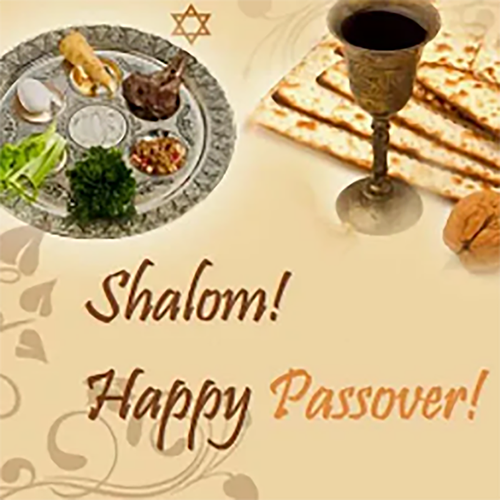 For the nation of Israel and those who identify with it anywhere in the world, Passover is the springtime holiday that commemorates the day God saved the Hebrew people out of the land of Egypt (Mitzrayim) over three thousand years ago. It is the first of the appointed times (Mo-ed) of God which He commanded the Israelites to observe throughout their generations forever.
For the nation of Israel and those who identify with it anywhere in the world, Passover is the springtime holiday that commemorates the day God saved the Hebrew people out of the land of Egypt (Mitzrayim) over three thousand years ago. It is the first of the appointed times (Mo-ed) of God which He commanded the Israelites to observe throughout their generations forever.
This event is recorded in the Hebrew Tanach, book of Vayiqra, also known as Leviticus in the Old Testament of the Christian Bible. It occurred on the 14th day of first month of the Hebrew calendar, Nisan, also known as Aviv, the time when the barley harvest in Israel is ripening and a key indicator for the timing of this spring feast.
“And the Lord spoke to Moses, saying,
Speak to the children of Israel and say unto to them: Concerning the feasts of the Lord, which ye shall proclaim to be holy assemblies, even these are my feasts.
Six days shall work be done; but the seventh day is the Shabbath of rest, a holy assembly; ye shall do no work therein; it is the Shabbath of the Lord in all your dwellings.
These are the feasts of the Lord, even holy assemblies, which ye shall proclaim in their appointed times.
In the fourteenth day of the first month at even is the Lord’s Pecach. And on the fifteenth day of the same month is the Feast of Matstsah unto the Lord: seven days ye must eat matstsah.
In the first day ye shall have a holy assembly: ye shall do no servile work therein. But ye shall offer an offering made by fire unto the Lord seven days: in the seventh day is a holy assembly: ye shall do no servile work therein. VAYIQRA (LEVITICUS) 23:1-8 את CEPHER”
In essence, the feast begins with an assembly on the evening of the 15 April if you live in Israel or the 16 if you don’t and ends seven days later on the Friday 22 for those in Israel and Saturday the 23 for those who don’t.
Many will celebrate with a traditional Passover meal known as the “Seder” a feast that includes reading through a book called “Haggadah,” drinking four cups of wine, telling stories, eating special foods, signing and other Passover traditions. (according to Chabad.org-The Passover Seder).
Others, who are coming to a knowledge of what it means to follow Torah (the instructions of life found in the Old Testament of the Bible) may not even know how to observe or celebrate this wonderous occasion.
What matters is that Passover is the story of our loving Heavenly Father defending His people and rescuing them from the evils of their day, redemption from slavery. It is a calling to come out of a system that sees you as a resource to be consumed and a call out to serve the Living God, the creator of everything we see, with love and humility. It is a time to forget about self and help those who cannot help themselves.
In this brief article it is hard to convey the true significance of this most important of spring feast. As we all aspire to be the best that we can be here at the University of Greenwich, consider Passover as a time to leave behind whatever binds you.
The university aspires to be the “best university it can be”, I believe we can achive this only by loving God first with all of our heart, with all of our soul and all of our strength and that we love our neighbour as ourselves. I also understand not everyone believes in God, but everyone one does know how they would like to be treated.
I leave you with two resources to consider if you have questions about this feast or how you can explore what it means to be the best you can be.
Passover, the two firstfruit harvests, and how to count the Omer up to Shau’OT
How to calculate God’s calendar on Passover and Unleavened Bread!
Thank you to Matthew Nadeau for sharing this article.

